|
#theotherGeorgia is about the size of South Carolina. I don’t know how long it takes to drive across South Carolina, but driving from the capital of George, Tbilisi, in the eastern central part, to Batumi, on the western border, takes about 7 hours. Crossing two different mountains along the way probably adds to the time. On Thursday, Mario and I drove across the country to the Black Sea city of Batumi. Along the way we did find an interesting rest stop. It has a beautiful boardwalk on which we walked despite the unusually cold weather and wind. We saw different statues and even two dolphins not far from the beach. They were coming up just enough to tell what they were. But, Nino, our host teacher, said they only jump out of the water when it’s warmer. I look forward to teaching in a private school in Batumi called St. Andrews. Click on the pictures below to get a better look.
0 Comments
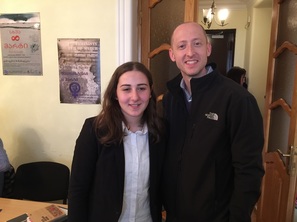 This is Mariam. She is a 17-year old activist (one who is active in bringing positive change) who I met today at a panel discussion on gender equality. When Mariam was 13 years old she decided that she wanted to do something about the unequal treatment of girls in her community. Outside of the capital city (and even inside for many families), a girl is expected to work hard in school so that they can get an education which will help them marry an educated man who can take care of her. Most Georgians see a girl’s primary role to be one of an obedient wife who cooks, cleans and takes good care of the children. This leads to many different types of unequal treatment of women, ranging from a large difference in salary to domestic violence against women. Instead of simply not liking the situation. Mariam decided to do something about it. In the last four years she has recruited help from her fellow students to raise awareness about the issue. She works with women’s rights groups to conduct workshops in many different parts of Georgia. She writes articles published by various groups. Last year, she started a “Young Feminists” group that works in five regions throughout the country. When I asked her why she decided to do this, she said, “Who else was going to do this? If not me, who would do it?” Great question Mariam. One that we all need to ask ourselves more often. And thank you for proving that it’s a question not only for adults, but even for 13-year olds. After hearing from students talking about schools in Georgia, we spoke with officials in the Ministry of Education. These are the people at the highest levels making the decisions that impact every teacher and student in the country. It was very interesting to hear the direction of education in the country. Here are the high points.
Teachers don’t make much money. The pay starts at around $200 per month and increases to $400 if they pass certain exams. Even though the cost of living is much less in Georgia than in the US, that pay still puts teachers below the poverty line. So what many teachers do is conduct private tutoring sessions for students who want extra help in subjects. I mentioned these tutoring groups in my post about the student panel. This tutoring allows teachers to supplement their income and better provide for their families. However, it cuts down the time they have to prepare for their school lessons and grade student work. This leads to poorer instruction in the classroom and student learning being negatively affected. There are many great teachers in Georgian schools. We have met a few who are outstanding. However, according to both the ministry and student panels, too many teachers focus on the students who are excelling in class and ignore everyone else. This could be 5 or 6 students out of 25 get the teacher’s attention and energy. There isn’t one solution to this problem. Salaries and teacher accountability need to increase. Professional development for teachers is essential as well. I'm excited that part of my time here will be spent in one school teaching and providing professional development for teachers. It will be a small contribution, but one nonetheless. On Wednesday, my travel partner Mario, a teacher from Chicago, and I will travel across the country to Batumi (on the Black Sea) and spend a week working in a school and experiencing Georgian culture. I’m excited. Besides “gmadlobt” (thank you), the Georgian words I’ve said the most often are “oo mareelo” (without salt). Like most people in the world, Georgians like to put lots of salt in, and on, their food. Unfortunately, my inner ear doesn’t like salt. So, those two little words have come in handy. I had hoped to be able to have short conversations by now in Georgian. As evidenced by the lack of mutual understanding between the cab driver and me last night, I clearly can't. We did make it back to the hotel last night though. Languages around the world are broken up into different families. English is an Indo-European Germanic language. That basically means it is related to some other languages. Its origins are the same, even if they don’t sound alike to us. However, Georgian has no other language in its family. It is ancient and very unique. It doesn’t share a script with any other language either. Below is a picture of the alphabet and some words. Try speaking it for yourself. Here are some basic phrases. Hello: Gamarjobat Goodbye: Nakhvamdis Please: Tu sheidzleba Thank you: Gmadlobt Cheers!: Gamarjobat! Oo Mareelo - without salt Minibus: Marshuka Stop here!: Gaacheret! Train: Mantarebeli In 2005, equal opportunity education became the law in #theotherGeorgia. Since then progress has been made towards providing a quality education for every child. Even with progress a great deal more needs to happen for the law to become a reality. We met with officials in the Ministry of Education today for a panel discussion on the topic of inclusion. This refers to including all students no matter their disability into the education system.
Before 2005, students with more prominent disabilities, like autism, deafness, and blindness among others, were kept at home because there were no services for them. Now those services are starting to be provided in some areas. However, the funds and training are slow coming. I also found it surprising how students with much milder forms of learning struggles also rarely receive helpful accommodations. Teachers tend to teach the material at a certain level and if you get it, you get it. There seems to be little by means of accountability for students and teachers. There is only one important test in a student’s school career here. It’s at the end of 12th grade and determines if you finish school and what university you qualify to go to. Students will move on to the next grade even if they have not learned the necessary skills or content. I am even more excited to be here and help by providing some professional development to some teachers so they are better equipped to teach all students, whatever their struggles. Before leaving Tbilisi, we visited a public school. In #theotherGeorgia grades 1 - 12 are in the same school. So we toured several areas of the school and looked in on classrooms of different age groups. The young first and second graders were adorable and showed off their English skills by counting to 10 and telling us their names. I was also able to sit in on a 7th grade English class. The teacher did a great job getting students moving around using the language. Then at the end, we were able to join in and talk with students as they learned about different vocations. In the video below, notice the classroom. Students stay in a group in the same classroom for most of the day, but in the early grades, the teachers rotate from class to class instead of the students. Earlier this week we had the privilege to speak with a youth panel about their experience growing up in the Georgian educational system. The three students are all currently in college and, through different grant programs, have spent some time in the US on exchange programs. They gave us the student’s perspective on the current state of education in Georgia. Since they’ve been in American schools (two of them for a whole year) they were able to compare and contrast the two systems. Here are some things I found interesting.
After having been in #theotherGeorgia for less than three days, I may have already found my favorite tradition. The Supra. The Supra is like a feast on steroids. The host prepares, or orders, enough food to feed about 100 people (I don't think that is an exaggeration). The food comes out slowly, about 6 - 8 courses over a 4 or 5 hour period of time. Each course, the food gets heavier and heavier. You move from breads to veggies to stews to fish to meat to meat to meat to fruit to dessert. It is rude to not eat what is given to you, so you have to pace yourself. Even if you really like something and would want to go back for seconds, it’s in your best interest to not. Unfortunately, I found out the hard way. I ate too much on the earlier courses. By the time the last round of meat came, I thought I’d never want to see meat again. Here are some pictures of some of the great food. We landed at 5 AM in Tbilisi, the capital of #theotherGeorgia. After eating and resting for a bit, we went for a tour of the city. Tbilisi is a multi-layered city that is built along a gorge. When traveling to the higher points of the city, you get a great view of different parts of the city. In that way, it reminds me of a smaller Istanbul. Our tour guide took us to ancient churches, old forts, and the old city walls. The city's modern architecture is a blend of Soviet and futuristic styles. But as we walked 10 miles around the city, the theme of our first day in Georgia was invasion.
Due to the strategic location of Georgia, sitting between the Black and Caspian Seas and along the ancient Silk Road, many empires have sought to conquer the land and its people. Ancient Greeks, Persians, Seljuks, Mongols, Ottoman Turks, and most recently the Russians have all controlled the area at some point. Georgia has been invaded and conquered around 30 times. You can still see the influence of many of these foreign cultures in the architecture of Tbilisi. One thing that remained consistent throughout all the conquests was the resilience of the Georgian people. They stayed committed to their Eastern Orthodox Christian religion (they converted nearly 1700 years ago) and kept their culture distinct through the preservation of their ancient language and traditions. This resilience is rooted in a great pride that can be found in the Georgian people. Not an arrogant pride or nationalism, but one of confidence, which is to be admired.  Early Sunday morning we arrived in the capital of Georgia. No, not Atlanta. Tbilisi. We traveled through the dark city to our hotel, The Rooms Tbilisi. I would post pictures, but their website has plenty of far better ones. Click here if you want to check out the place. It is very nice and the breakfast is even better than the decor of the place. Omelets, pastries, breads, fruit, vegetables, and hummus. But the highlight of the breakfast was khachapuri, a traditional cheese filled bread that has the texture of a pastry. I’m already looking forward to waking up tomorrow morning. |
AuthorStephen Blan teaches US History at Fort Worth Country Day in Fort Worth, TX and is a 2015 Teachers for Global Classrooms Fellow. Archives
September 2017
Categories
All
|
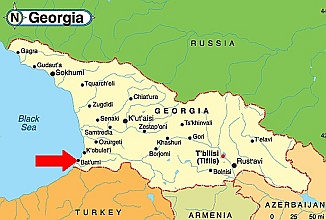
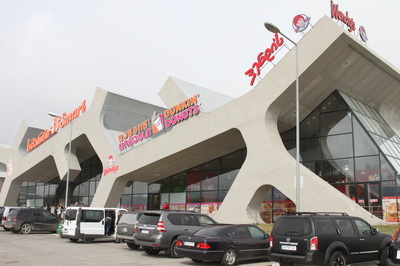
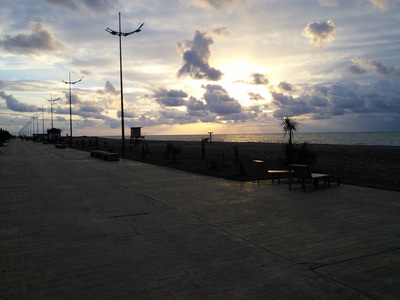
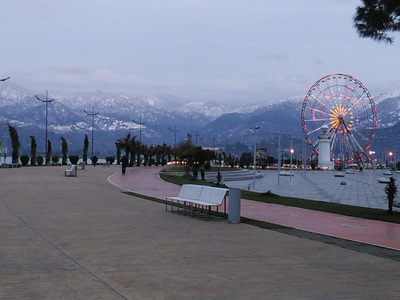
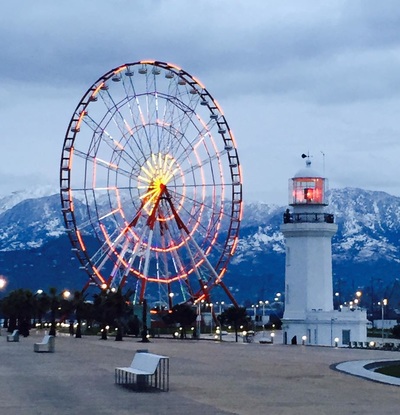
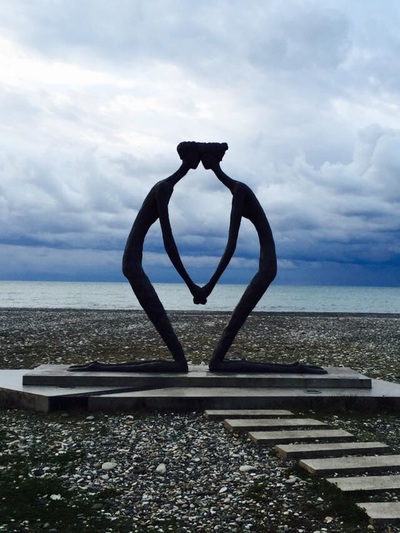
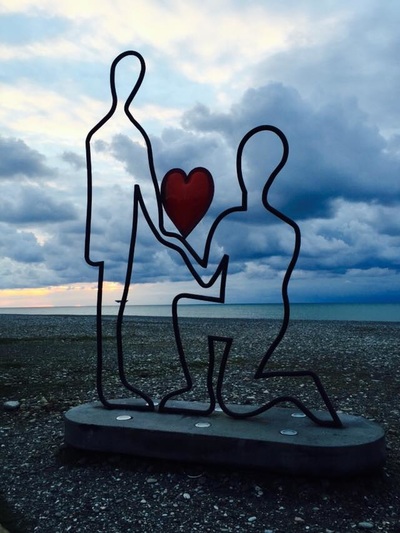
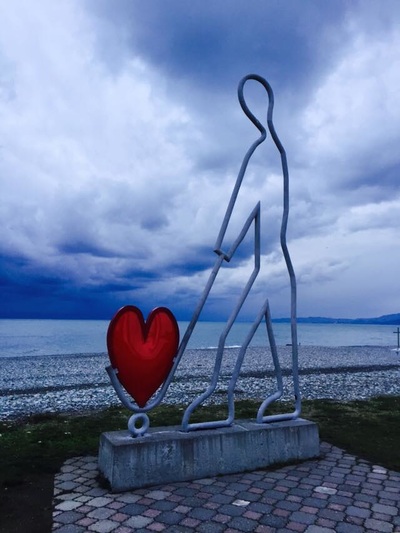
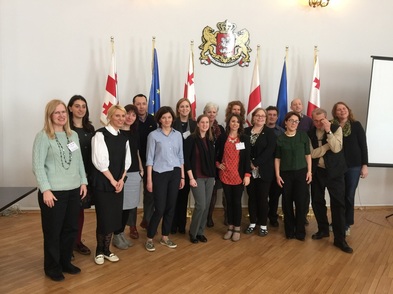

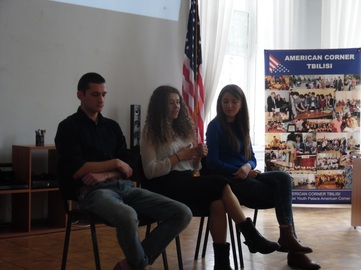
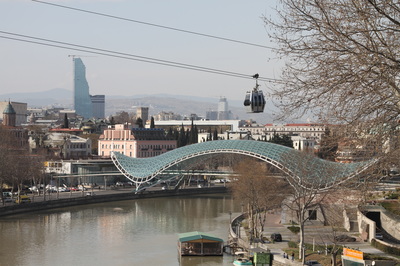
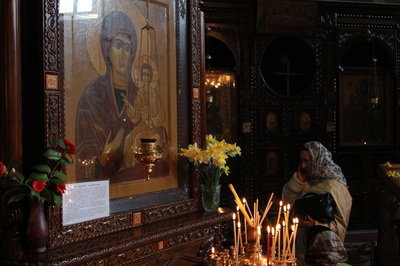
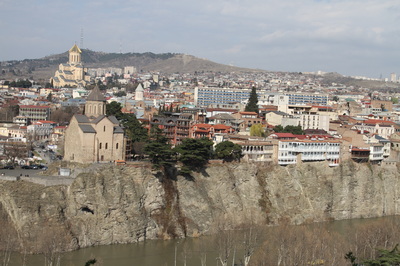
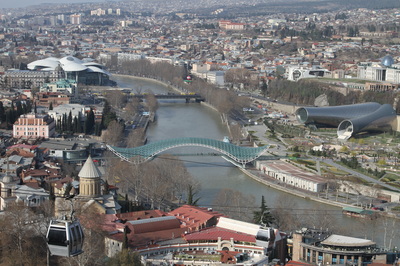
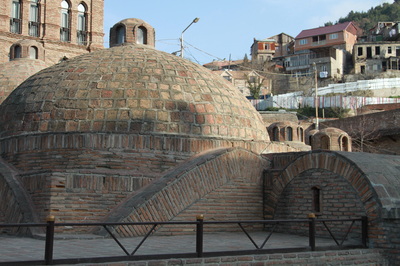
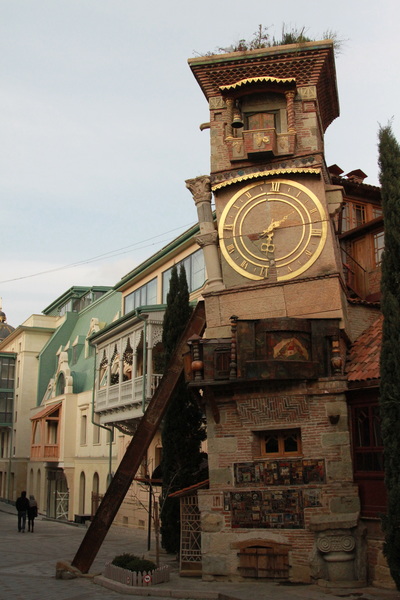
 RSS Feed
RSS Feed